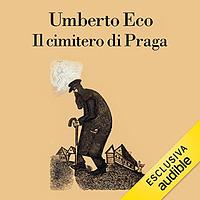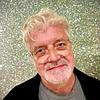Take a photo of a barcode or cover
I read maybe 3/4 of it and then skipped through the rest. The idea of telling the story from three perspectives is great and interesting. The story about how you can create rumors and prejudice based out of nothing is good too. But overall, for me, this book has too many passages that just drag along and feel repetitive. I enjoyed some passages, but overall I didn't enjoy it that much.
This just wasn't what I thought it would be. It took way more mental involvement than I have to give right now. I may try it again later.
Honestly? A bit duller than his usual standard. The writing is excellent, as is the research and detail, but it drags a little. For me anyway. Sorry Bertie.
If you're on board with an inordinately detailed book with the author of the Protocols of the Elders of Zion then yeah, this is your book.
It's fairly standard Eco. None of the characters are too human, there are no women around save for window dressing, and the locations all start to bleed together after a while. The point is the text and the subtext more than anything else. These sort of books are always fun to read with wikipedia at the ready to check up on the little knowledge-bombs Eco drops along the way.
It's an extraordinarily similar plot to Foucault's Pendulum. There are lots of mini conspiracy theories, and Eco is looking to paint the arch conspiracy theory. But instead of having a likable group of louts on the case in Foucault's Pendulum, this book has an extremely unlikable lout doing that sort of work.
It's a lot of fun reading a book from the point of view of a such a jackass. You start to realize anything's possible because this guy just isn't bothered by a moral compass. Watching him problem solve is like watching a Cormac McCarthy bad guy (the literal only comparison this book could make with a McCarthy novel), he is fearless about breaking anything in his path.
The whole "point" of the novel is demonstrating how received wisdom and arguments from authority allow lies to become fact and allow shadow conspiracies to be made flesh. It's really interesting to see how he demonstrates the whole "find facts to fit the thesis" thing that has basically pretty much plagued human history. Plenty of modern-day "academics" are quite good at this (you know who you are), and it's really nothing new under the sun. Hate the Jews, hate the Catholics, hate the Muslims, hate the Blacks, hate the Browns, hate the Others...it's just shifting in different nouns in the same old Mad Libs. This is a fun little collection, 400 pages worth, of just how falsified and old all of this is.
And how old it will continue to be.
It's fairly standard Eco. None of the characters are too human, there are no women around save for window dressing, and the locations all start to bleed together after a while. The point is the text and the subtext more than anything else. These sort of books are always fun to read with wikipedia at the ready to check up on the little knowledge-bombs Eco drops along the way.
It's an extraordinarily similar plot to Foucault's Pendulum. There are lots of mini conspiracy theories, and Eco is looking to paint the arch conspiracy theory. But instead of having a likable group of louts on the case in Foucault's Pendulum, this book has an extremely unlikable lout doing that sort of work.
It's a lot of fun reading a book from the point of view of a such a jackass. You start to realize anything's possible because this guy just isn't bothered by a moral compass. Watching him problem solve is like watching a Cormac McCarthy bad guy (the literal only comparison this book could make with a McCarthy novel), he is fearless about breaking anything in his path.
The whole "point" of the novel is demonstrating how received wisdom and arguments from authority allow lies to become fact and allow shadow conspiracies to be made flesh. It's really interesting to see how he demonstrates the whole "find facts to fit the thesis" thing that has basically pretty much plagued human history. Plenty of modern-day "academics" are quite good at this (you know who you are), and it's really nothing new under the sun. Hate the Jews, hate the Catholics, hate the Muslims, hate the Blacks, hate the Browns, hate the Others...it's just shifting in different nouns in the same old Mad Libs. This is a fun little collection, 400 pages worth, of just how falsified and old all of this is.
And how old it will continue to be.
There is nothing about this book that I don't like. Except all of it.
Unreliable narrator? Hoaxes? Elaborate set pieces? I love that crap. But something just didn't click here.
Unreliable narrator? Hoaxes? Elaborate set pieces? I love that crap. But something just didn't click here.
I've struggled with this one over the years and decided to dive in once more.
It's not an easy book by any means, there's a lot of ramblings and a lot of smudges between fiction and reality. However, when it struck, it stayed with me, I found myself unable to quit it and it ended up being grand. This is my very first Eco and now I'll have to read The Name Of The Rose.
It's not an easy book by any means, there's a lot of ramblings and a lot of smudges between fiction and reality. However, when it struck, it stayed with me, I found myself unable to quit it and it ended up being grand. This is my very first Eco and now I'll have to read The Name Of The Rose.
It was fairly eye-opening at first, as The Prague Cemetery opened with a Jekyll and Hyde scenario involving a priest and a criminal document forger who are either the same person or two people with selectively complementary amnesia (each remembers what the other does not). Having them converse in the space of the forger's diary, picking up where the other had left off, was amusing, as was the bewildered framing narrator attempting to piece their memories together, a task not without frustrations given the premise. Of mention is the staggeringly vast library that Eco is fond of immersing his readers in, so deeply that one is helplessly impressed at how in the space of his genius mind he manages to put together discrete nuggets of fact and fantasy, while weaving questions of truth, interpretative relativity and the solidness of reality in and out of his narratives, creating a story so impermeably solid but also the novel itself deconstructs as of almost thin air (as most stories are, of bits and pieces shifted around to turn into new things, a prominent idea resurfacing around The Name of the Rose). Yet somewhere along the line it did become rather tiresome to read constantly of conspiracy after conspiracy and the ceaseless mud-slinging between various loosely Judeo-Christian religious groups and their secret society spin-offs which form the main thread of this novel. It would've been thrilling if it were less laboured over, or it just could be the case that it wasn't the sort of thing I would be extremely excited over. Knowing Eco and his writing history however, he undoubtedly had fun writing this, as he did Foucault's Pendulum, and a respectful salute is well-deserved there. Conspiracies steeped in labyrinthine historical detail (none of which this reader is knowledgeable enough to verify the truth of) is his prime area of interest. His thing, but not mine.
adventurous
dark
funny
mysterious
medium-paced
Plot or Character Driven:
A mix
Strong character development:
No
Loveable characters:
No
Diverse cast of characters:
Yes
Flaws of characters a main focus:
Yes
challenging
dark
informative
mysterious
tense
medium-paced
Plot or Character Driven:
Plot
Strong character development:
No
Loveable characters:
No
Diverse cast of characters:
Complicated
Flaws of characters a main focus:
Complicated
I previously read "Baudolino" and "The name of the rose". I found the former quite challenging, but still managed to enjoy the overall story. "The name of the rose", although with its difficulties, was much more enjoyable. With "The Prague cemetery" I felt I was just being punished with boredom. I couldn't really make myself enjoy it. Too much conspiracy and nasty men. And that wasn't the worst. The whole store just felt heavily dense for no good reason. There is a good idea for the base story, but as usual, Eco complicates way too much and I feel only very intellectual and braniac people might enjoy this, as if when he writes a story, he is trying to show the rest of us are ignorant and lack intellect. The writing is ok, but the story way too dense.
Knjiga je napisana u vidu feljtona, upravo kako se uglavnom i pisalo u doba koje pokriva ova knjiga, to je naravno piščeva želja. Višeslojnost se ne ogleda samo u neprestanim osvrtima na prošlost, vraćanju na trenutna dešavanja, već i u mnogobrojnim pričama koje se slažu jedna sa drugom, pa još kad se doda i postojanje drugog "glavnog" lika opata Dala Pikola, sve se to uvuče u jedan vrtlog, predivan i opak.
Glavni lik je Simonini, krivotvoritelj, veliki antisemita koji je nasledio svoju mržnju od dede, čoveka koji je uveliko uticao na formiranje njegovog mišljenja, delimično brainwashingom.
Potpuno nemoralan, ubija olako, zabada nož u leđa po potrebi a njegov glavni cilj je novac. Provlačeći se kroz podzemlje, gde vladaju masoni, jezuiti i jevreji, on je čovek koji je uvek na strani novca, ne gledajući u čijim se rukama on nalazi.
Sve ličnosti su uglavnom istorijske, možda sa nekim promenjenim imenom, ali je Eko zanimljivo ukomponovao sve u jednu vrtoglavu priču. Čak se srećemo sa Doktorom Frojdom, dok se u jednom trenutku raspravlja o Dostojevskom i njegovom odnosu prema Jevrejima(koji su glavna meta romana, kao i spisa Protokola).
U jednom trenutku sam ostao potpuno izgubljen jer više nisam znao gde se šta dešava i ko pripoveda, da li je Dala Pikola stvarna ličnost, kako je odjednom mrtav, pa živ. Srećom, ubrzo se lako pohvataju niti, a njihovo stvaranje je maestralnost Umberta Eka, ogromnog pisca današnjice.
Glavni lik je Simonini, krivotvoritelj, veliki antisemita koji je nasledio svoju mržnju od dede, čoveka koji je uveliko uticao na formiranje njegovog mišljenja, delimično brainwashingom.
Potpuno nemoralan, ubija olako, zabada nož u leđa po potrebi a njegov glavni cilj je novac. Provlačeći se kroz podzemlje, gde vladaju masoni, jezuiti i jevreji, on je čovek koji je uvek na strani novca, ne gledajući u čijim se rukama on nalazi.
Sve ličnosti su uglavnom istorijske, možda sa nekim promenjenim imenom, ali je Eko zanimljivo ukomponovao sve u jednu vrtoglavu priču. Čak se srećemo sa Doktorom Frojdom, dok se u jednom trenutku raspravlja o Dostojevskom i njegovom odnosu prema Jevrejima(koji su glavna meta romana, kao i spisa Protokola).
U jednom trenutku sam ostao potpuno izgubljen jer više nisam znao gde se šta dešava i ko pripoveda, da li je Dala Pikola stvarna ličnost, kako je odjednom mrtav, pa živ. Srećom, ubrzo se lako pohvataju niti, a njihovo stvaranje je maestralnost Umberta Eka, ogromnog pisca današnjice.






